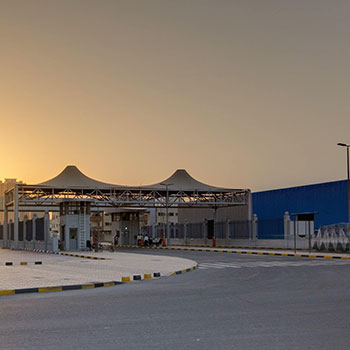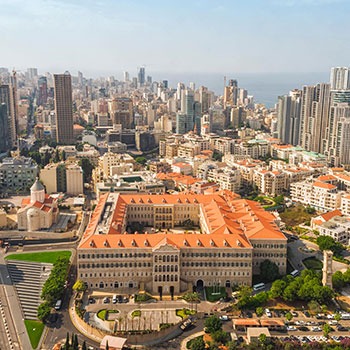Article 121 of the UAE Constitution empowered the Federation to establish Financial Free Zones within the Emirates, allowing, notably, the exemption of specific Federal laws within these designated areas. There are more than 40 dedicated free zones in the United Arab Emirates that stand out for their highly efficient infrastructure and specialized services and streamlining operations. Additionally, free zones are underpinned by robust legal frameworks and are equipped with the necessary licenses to cater to the specific industries they are designed to serve. In this article, we will explore the different free zones and the advantages and potential drawback of establishing businesses in such jurisidictions.
Seamless Business Setup:
Establishing a business in a UAE free zone is straightforward, offering a streamlined approach that appeals to entrepreneurs and businesses seeking a foothold in the UAE. The steps involved are user-friendly, involving minimal paperwork and shorter processing times compared to other business setups.
Choosing Legal Entity:
- Entrepreneurs must consider the type of legal entity that aligns with their business goals within the options available in the free zone.
- The available legal structures may include options such as free zone company, branch, representative office, or other types of legal entity each having its own implications for ownership, liability, and operations.
Flexible Capital Requirements:
- Various free zones not only offer flexible capital requirements but also allow businesses to benefit from reduced initial capital outlay. This accommodation caters to businesses of varying scales, from startups to well-established enterprises, fostering a diverse business landscape within the free zone.
Trade Name and Office Space:
- Selecting a unique and appropriate trade name is crucial for brand identity and legal compliance within the free zone.
- Securing office space involves choosing from a range of options, including shared offices, or dedicated spaces, providing businesses with the flexibility to align their space needs with their budget and operational requirements.
This simplicity, combined with the advantages of operating within a free zone, positions it as a suitable choice for those aiming to establish or expand their businesses in the region. This means that all the necessary permits, licenses, and approvals can be obtained swiftly and efficiently, enabling them to commence operations promptly.
Understanding the Operational Spectrum
Free zones in the UAE are typically tailored to accommodate specific industries and sectors. As a result, the range of permissible business activities may be limited, thereby restricting the operational flexibility of companies operating within these zones. Businesses seeking to diversify into activities beyond the scope of their chosen free zone might need to explore alternative licensing options or consider establishing a presence in the UAE mainland. Companies aspiring to establish themselves in a free zone are required to adhere to the activity restrictions that align with the specializations provided by the respective jurisdiction and its governing regulations.
Moreover, companies operating within free zones are generally confined to conducting their business activities exclusively within the zone’s premises. As a result, they may be prohibited from engaging in direct trade with the local UAE market unless they involve the services of a local distributor or agent. This restriction can curtail market access and influence the business’s overall outreach.
Tax advantages
Setting up a business in a UAE free zone offers a range of tax advantages, which have become even more pertinent in light of the UAE’s new corporate tax policies. Traditionally, businesses in these zones have benefited from a zero percent corporate tax rate (same as mainland entities prior to the new corporate tax law), exemption from import and export duties, and the absence of personal income tax. This environment fosters an attractive climate for foreign investment, with policies allowing full repatriation of profits and capital. Additionally, while VAT is applicable, the free zones provide efficient mechanisms for its management, enhancing the overall tax efficiency for businesses operating within these zones.
With the introduction of federal corporate tax in the UAE from June 2023, free zone businesses face new considerations. Despite this change, businesses in free zones are expected to remain largely exempt from corporate tax, provided they meet certain regulatory requirements and do not engage in business with mainland UAE. This exemption, along with potential grandfathering provisions for existing businesses, ensures that free zones retain their appeal for international businesses. However, it’s important for `companies to adhere to international standards of transparency and tax reporting. Given these nuances, consulting with a tax advisor or legal expert is essential to navigate the specific regulations of each free zone and fully capitalize on these tax benefits, aligning them with long-term business objectives.
The Free zones:
Abu Dhabi: Abu Dhabi Global Market (ADGM), Khalifa Industrial Zone Abu Dhabi (KIZAD), Masdar City and Abu Dhabi Airport Free Zone (ADAFZ) .
Dubai: Dubai Airport Free Zone, Dubai Design District, Dubai Gold and Diamond Park, Dubai Healthcare City, Dubai International Academic City, Dubai Internet City, Dubai International Financial Centre, Dubai Logistic City, Dubai Knowledge Park, Dubai Maritime City Free Zone (DMC) , Dubai Media City, Dubai Multi Commodities Centre (DMCC), Dubai Production City, Dubai Science Park, IFZA Business Park , Dubai Studio City, Dubai Textile City, Dubai World Central (Dubai South), Dubai Studio Park, Dubai World Trade Centre, International Humanitarian City, Jebel Ali Free Zone (JAFZA) and Meydan Free zone.
Sharjah: Hamriyah Free Zone, SAIF Zone, Sharjah Media City (SHAMS), SRTI Park, Sharjah Publishing City, Sharjah Healthcare City, Sharjah Airport International Free Zone.
Ajman: Ajman Free Zone and Ajman Media City Free Zone.
Ras Al Khaimah: Ras Al Khaimah Economic Zone (RAKEZ), RAK Maritime City Free Zone Authority (RMCFZA), Ras Al Khaimah Investment Authority, Ras Al Khaimah Free Trade Zone, Ras Al Khaimah and Media Free Zone.
Fujairah: Fujairah Free Zone and Fujairah Creative City.
Umm Al Quwain: Umm Al Quwain Free Trade Zone (UAQFTZ).
Hind Ayoubi
Paralegal
11/11/2023
For personalized guidance regarding establishing companies in Free zones in the UAE, please do not hesitate to contact our team by sending an email to: attorneys.ad@omlfirm.com.
DISCLAIMER: This blog post does not constitute legal advice, and no attorney-client relationship is formed by reading it. Additional facts or future developments may affect the content of this blog post. Before acting or relying upon any information within this newsletter, please seek the advice of an attorney.









